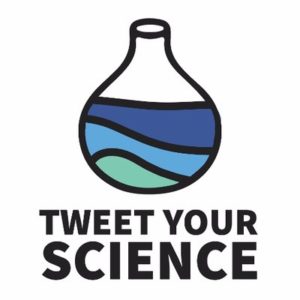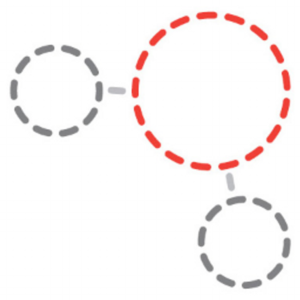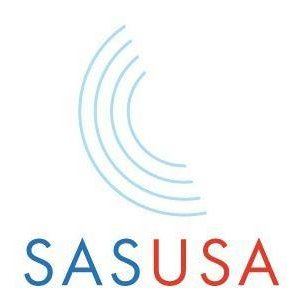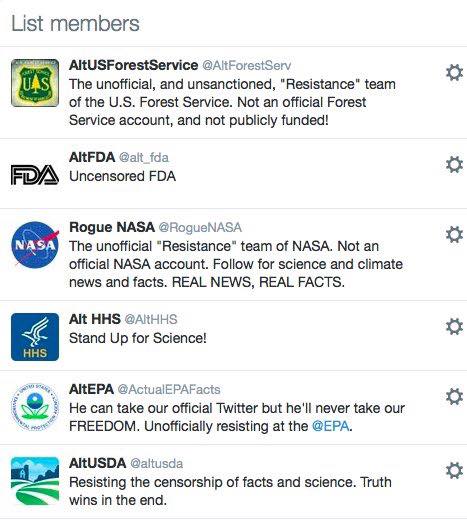Science and Social Media
Scientists around the world have harnessed the power of all types of social media. This collection of articles and examples barely touches the surface of the very top of the tip of the iceberg.
![]()
Bik HM, Goldstein, MC. An introduction to social media for scientists. PLoS Biol., 2013, 11(4): e1001535, doi:10.1371/journal.pbio.1001535.
Hall N. The Kardashian index: A measure of discrepant social media profile for scientists. Genome Biol., 2014, 15:424, doi:10.1186/s13059-014-0424-0.
 Van Eperen L, Marincola FM. How scientists use social media to communicate their research. J. Transl. Med., 2011, 9:199, doi:10.1186/1479-5876-9-199.
Van Eperen L, Marincola FM. How scientists use social media to communicate their research. J. Transl. Med., 2011, 9:199, doi:10.1186/1479-5876-9-199.

Social Media for Scientists/Scholars
Cold Spring Harbor Laboratory (CSHL) Library LibGuides provides an overview of social media, highlighting those intended specifically for scientists and scholars. It also describes CSHL’s current social media presence. (cshl.libguides.com/c.php?g=474049&p=3243761)

Amazing Science Blogs
www.facebook.com/Amazing-Science-Blogs-1728161814169804/?hc_ref=PAGES_TIMELINE
 Tweet Your Science
Tweet Your Science
@tweetyoursci
Teaching scientists to use Twitter so they can share their research with the world! Use our hashtag and #TweetYourScience!
 March for Science
March for Science
@ScienceMarchDC
#ScienceMarch supports scientists from all over the world!
 Life Science Network
Life Science Network
@lifesciencenet
A web platform dedicated to life sciences. Sign up at lifescience.net. Tweets by @apiljic.
 What is SpotOn?
What is SpotOn?
SpotOn is a series of community events for the discussion of how science is carried out and communicated online. Our flagship conference is the annual SpotOn London two-day event, formerly called Science Online London, and now in its fifth year. We also host monthly SpotOn NYC events in NYC. SpotOn discussions fall into three broad topic areas—policy, outreach and tools—and this site collates the conversations and other archive material around all of the events.
If you have any questions or would like to contribute to the SpotOn site, please email us: SpotOn@nature.com.
 SenseAboutScienceUSA
SenseAboutScienceUSA
@SenseScienceUSA
Advocating for evidence and transparency in science and society. Collaborates with @senseaboutsci. Runs @statsorg, @AllTrialsUSA (http://bit.ly/2axyveF).
“Rogue” Twitter
The latest use of social media by scientists has been the “rogue” Twitter accounts for various government agencies in response to the White House demand that they no longer share information with the public. Some of those are listed here.
#ActualLivingScientist
In response to feeling a persistent anti-science sentiment as a result of recent political shifts in the U.S., scientists began using the hashtag in an effort to make themselves seen and heard. The following are republished with permission.
#ActualLivingScientist who studies workplace inequality, discussing the racial wage gap on NPR. I #DressLikeAWoman. And like a #boss ? pic.twitter.com/hMoy0vZeb0
— Adia H Wingfield (@AdiaHWingfield) February 4, 2017
I’m Amanda Glaze and this is how I #DressLikeAWoman when I do outreach with kids #WomenInSTEM #actuallivingscientist pic.twitter.com/JMSStiiMvS
— Amanda L. Glaze (@EvoPhD) February 5, 2017
Hi I’m Becky an #actuallivingscientist #ecologist helping #undergraduates improve their #scicomm #DressLikeAWoman Pic by @FromTheLabBench pic.twitter.com/FWX86acVho
— Becky Carmichael (@bcarmi1) February 4, 2017
Hi! I’m Justin, an #actuallivingscientist who uses underground #neutrino particle detectors to find exploding stars. pic.twitter.com/rv17QcnRyV
— Justin Vasel (@justinvasel) February 13, 2017
Hi, I’m Éamon. I study the evolution of human breathing. My research takes me to some really cool places! #actuallivingscientist pic.twitter.com/rJZ96bzoEv
— William E Callison (@wecallison) February 4, 2017
*A person who indulges in and desires information gathering and interpretation. The term was introduced in 2006 by neuroscientists Irving Biederman and Edward Vessel.

